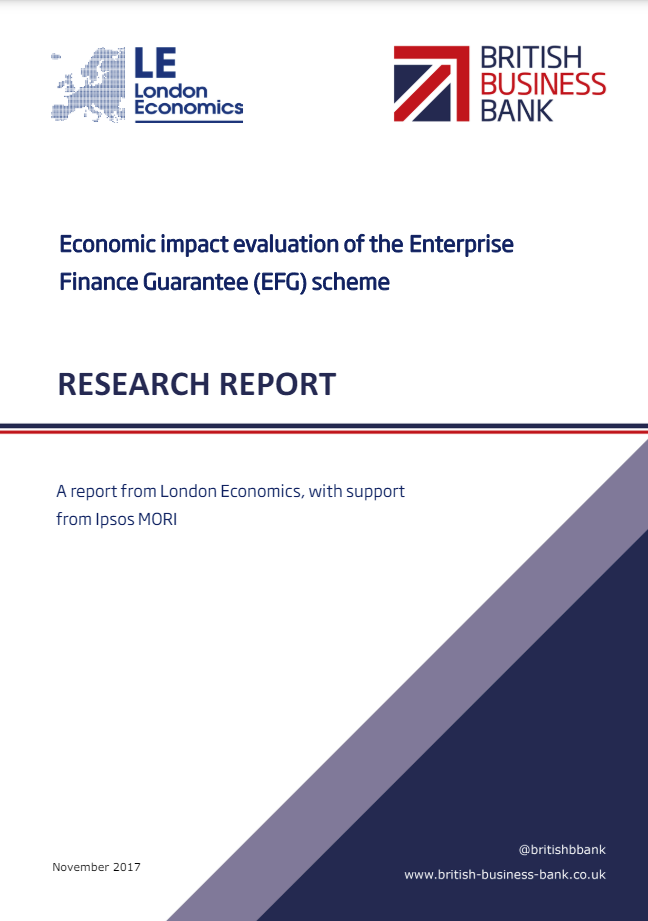Report and publications
The evaluation results show that the Enterprise Finance Guarantee (EFG) scheme continues to create significant economic benefits to society. EFG supported loans to SMEs across 2010/11 to 2012/13 generated £415m of economic benefits, compared to £82m economic costs. Five-year societal benefit-to-cost ratios ranged from 7.2 (for the 2010/11 loan cohort) to 11.3 (for the 2012/13 loan cohort).
Smaller businesses that received an EFG loan demonstrated turnover and employment growth that was 7.3% p.a. and 6.6% p.a. faster than a matched comparison group. Younger businesses and those of relatively small size demonstrated larger turnover and employment growth impacts, which could be because these businesses find it harder to obtain external finance due to lack of proven track record and collateral shortages.
SMEs form an essential part of the UK economy in terms of value added and employment. However, they face financing constraints, due to asymmetries of information between borrowers and lenders.
While banks can help SMEs overcome financing constraints through relationship lending in general, they had been limited in their ability to provide SMEs with access to finance in the years following the global financial crisis.
In light of these issues, and as a response to the global financial crisis initially, the UK government rapidly expanded its existing SME loan guarantee programme – launching the “Enterprise Finance Guarantee (EFG) scheme” in January 2009.
The EFG scheme is a national loan guarantee scheme that facilitates lending to viable businesses that have been turned down for a loan or other form of debt finance due to inadequate collateral.
Over the period 2008/20092 and 2013/2014, guaranteed loans3 worth £2bn were issued under the EFG scheme. New lending under the EFG scheme was at its height when UK GDP growth was at its lowest level after the onset of the global financial crisis, suggesting that the EFG scheme served as a form of countercyclical economic policy during this period.
The 2017 evaluation of the EFG scheme
The aim of the present evaluation is to provide the British Business Bank (BBB) with an evidence base on the EFG scheme to make future resource allocations.

Economic impact evaluation
Download the economic impact evaluation of the Enterprise Finance Guarantee (EFG) scheme - 2017